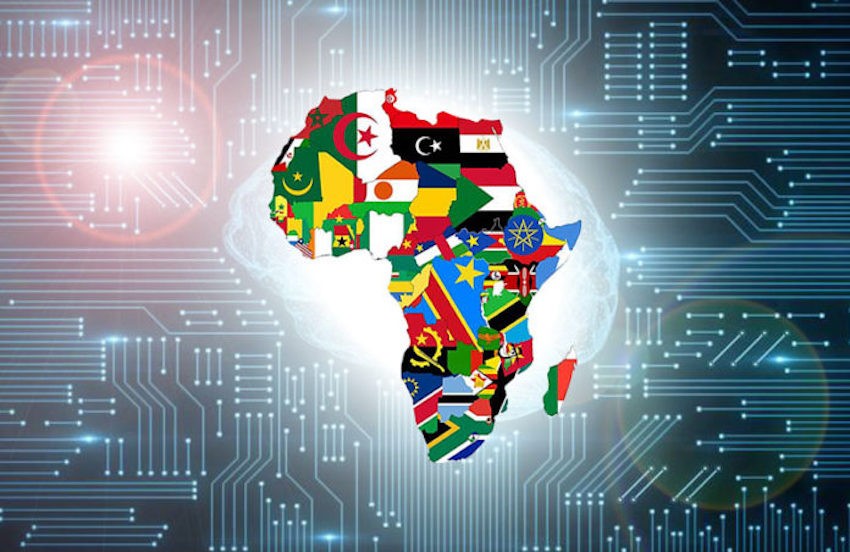The escalating trade war initiated by President Donald Trump’s sweeping tariffs on Mexico, Canada, and China signifies a profound shift in global economic dynamics. As major economies engage in protectionist policies, Africa must critically assess its position in the global economy and take decisive steps to safeguard its interests. These developments raise urgent questions: What do they mean for Africa? How should African states respond? More fundamentally, do these shifts necessitate a recalibration of Africa’s global commitments, particularly in relation to the Sustainable Development Goals (SDGs)?
The Global Trade Turmoil and Its Implications for Africa
Trump’s tariffs on key trading partners threaten the stability of the global economy. Imposing a 25% duty on imports from Canada and Mexico, alongside doubling tariffs on Chinese goods, has exacerbated inflationary pressures and deepened economic uncertainties. Retaliatory tariffs from China, Canada, and Mexico have further compounded the economic fallout.
For Africa, the immediate consequences may appear indirect but remain highly significant. A slowdown in global economic growth, disruptions to supply chains, and fluctuating commodity prices could have far-reaching implications for economies that rely on trade with these nations. Major powers embroiled in trade disputes risk marginalising Africa further in global trade negotiations, necessitating a proactive and strategic response from the continent.
A Call for Strategic Repositioning
Passivity is not an option. Africa must use these developments as an impetus to assert greater control over its economic destiny. A multi-faceted strategy should include:
Prioritising Intra-Continental Trade: The African Continental Free Trade Area (AfCFTA) presents a transformative opportunity to strengthen economic resilience. Deepening regional trade ties and reducing dependence on volatile external markets will help buffer the continent from external shocks.
Strengthening Local Industries: The shifting trade landscape serves as a wake-up call for African nations to accelerate industrialisation, value addition, and local production. A robust manufacturing base reduces reliance on imports and enhances competitiveness in global markets.
Diversifying Global Partnerships: Expanding economic alliances with emerging powers in Asia, Latin America, and the Middle East is crucial. Over-reliance on Western economies increases vulnerability to unilateral policy shifts from dominant players such as the US and China.
Reassessing Multilateral Commitments: The unpredictability of global powers underscores the need for Africa to evaluate its commitments to frameworks like the SDGs. While these goals provide a broad development blueprint, their effectiveness is often hindered by external dependencies and economic fluctuations beyond Africa’s control.

Should Africa Abandon the SDGs and Focus on Agenda 2063?
The Sustainable Development Goals (SDGs) provide an important global framework for tackling poverty, inequality, and environmental challenges. However, Africa’s priorities must be determined by its own realities, needs, and aspirations. The continent’s development trajectory cannot be dictated by external agendas that may not fully align with its specific challenges and opportunities.
Agenda 2063, the African Union’s strategic framework for socio-economic transformation, offers a more tailored and comprehensive roadmap. It prioritises Africa’s long-term vision of economic self-sufficiency, regional integration, and sustainable development, grounded in the continent’s unique social, political, and economic contexts. Unlike the SDGs, which are largely shaped by global institutions, Agenda 2063 is rooted in Africa’s own aspirations, reflecting its determination to control its developmental destiny.
Rather than abandoning the SDGs outright, Africa should strategically ensure that Agenda 2063 remains the principal guide for policymaking and development planning. African states must focus on policies that enhance economic resilience, strengthen regional value chains, and promote sustainable industrialisation. A pragmatic approach would involve integrating aspects of the SDGs that align with Africa’s needs while resisting external directives that do not serve its long-term interests. Also, efforts should be made to ensure that international partnerships and donor engagements are shaped by Africa’s priorities rather than imposed conditions.
A New Role for the United Nations?
The deepening fractures in global economic relations raise critical questions about the effectiveness of multilateral institutions such as the United Nations. If major global powers continue to resort to protectionism and unilateralism, the UN’s credibility as a mechanism for collective decision-making and global governance will be further eroded. Many African states have long called for reforms within the UN system to ensure fairer representation, particularly in decision-making bodies like the UN Security Council.
Africa must actively advocate for reforms that elevate its role within global governance structures. The continent should push for mechanisms that guarantee equal representation in economic negotiations, ensuring that African voices are not marginalised in critical discussions on trade, finance, and development. This would enhance Africa’s ability to shape international policies that impact its future, rather than merely responding to decisions made by dominant global powers.
Seizing the Moment for African-Led Development
The shifting global trade order underscores the urgency for Africa to take decisive action in shaping its economic future. Rather than being a passive bystander in global trade conflicts, the continent must seize the moment to deepen intra-African trade, accelerate industrialisation, and assert greater economic independence. African governments should commit to policies that drive economic transformation by investing in infrastructure, technology, and human capital development.
Agenda 2063 offers a clear and ambitious blueprint for Africa’s future, one that places regional cooperation, innovation, and self-sufficiency at its core. African nations must take proactive steps to implement its key pillars, ensuring that economic policies are designed to benefit the continent first and foremost. As major economies continue to engage in trade disputes, Africa has a rare opportunity to reposition itself strategically, unlocking its vast potential and fostering a more resilient, self-reliant future.
Cover Image: Trudeau says the U.S. launched a ‘very dumb’ trade war and Canada is fighting back – Coast Reporter


